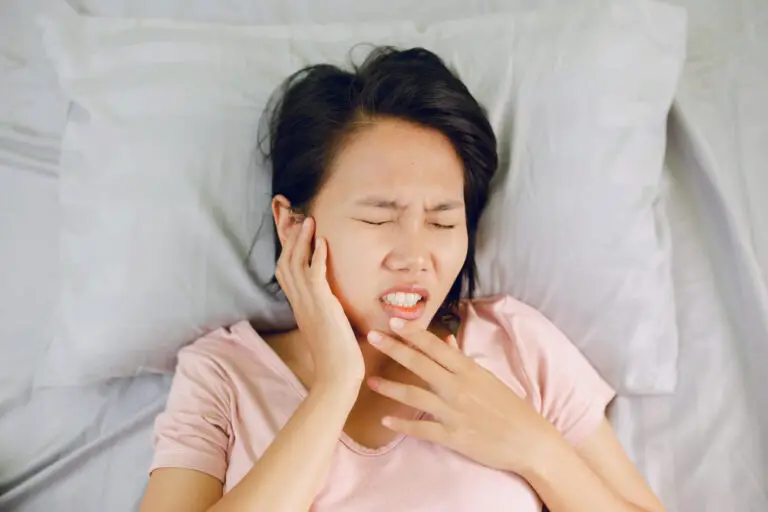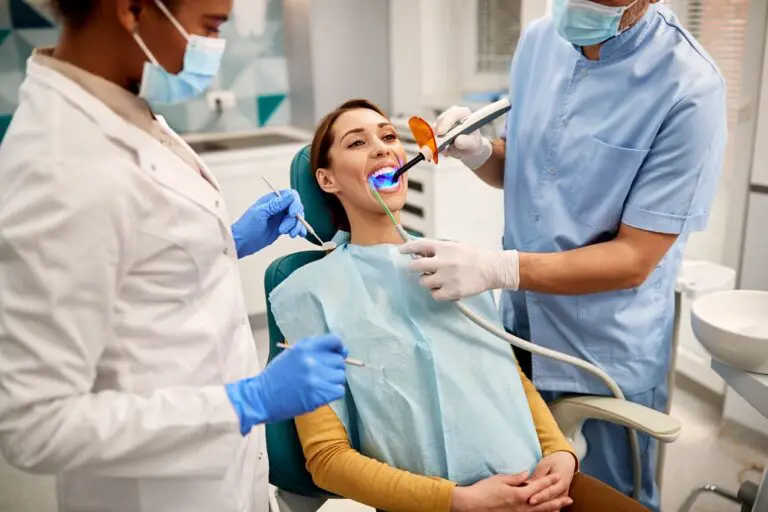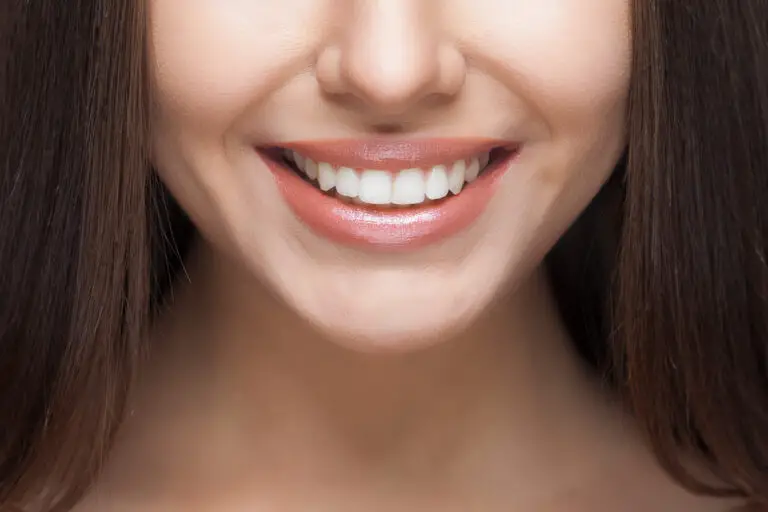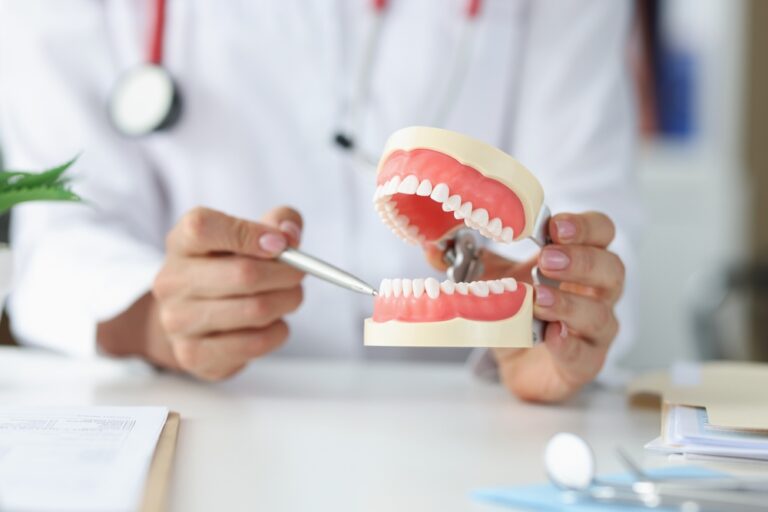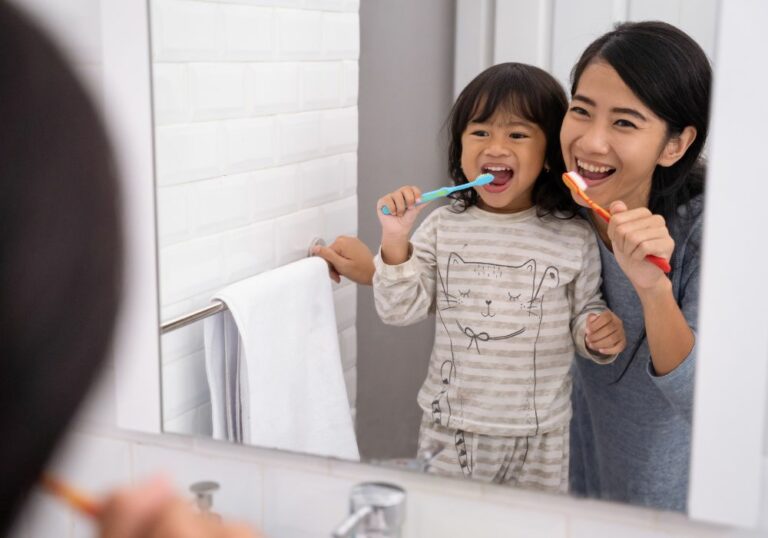Are you tired of waking up with a sore jaw and headaches caused by grinding your teeth? Teeth grinding, or bruxism, is a common condition that affects many people. It can occur during the day or at night while you sleep, and can cause damage to your teeth, jaw, and even lead to sleep disturbances. While there are many treatment options available, some people prefer to try home remedies first.
Fortunately, there are several home remedies you can try to help stop grinding your teeth. One popular remedy is practicing relaxation techniques such as yoga, meditation, or deep breathing exercises. These techniques can help reduce stress and anxiety, which are common triggers of teeth grinding. Another home remedy is drinking chamomile tea before bed. Chamomile has natural calming properties that can help you relax and sleep better, potentially reducing the likelihood of teeth grinding.
It’s important to note that home remedies may not work for everyone, and it’s always best to consult with your dentist or healthcare provider before trying any new treatments. Your dentist may recommend a mouthguard or splint to protect your teeth and jaw, or refer you to a specialist for further evaluation and treatment. With the right care and treatment, you can reduce or even eliminate teeth grinding and improve your overall oral health.
Understanding Teeth Grinding
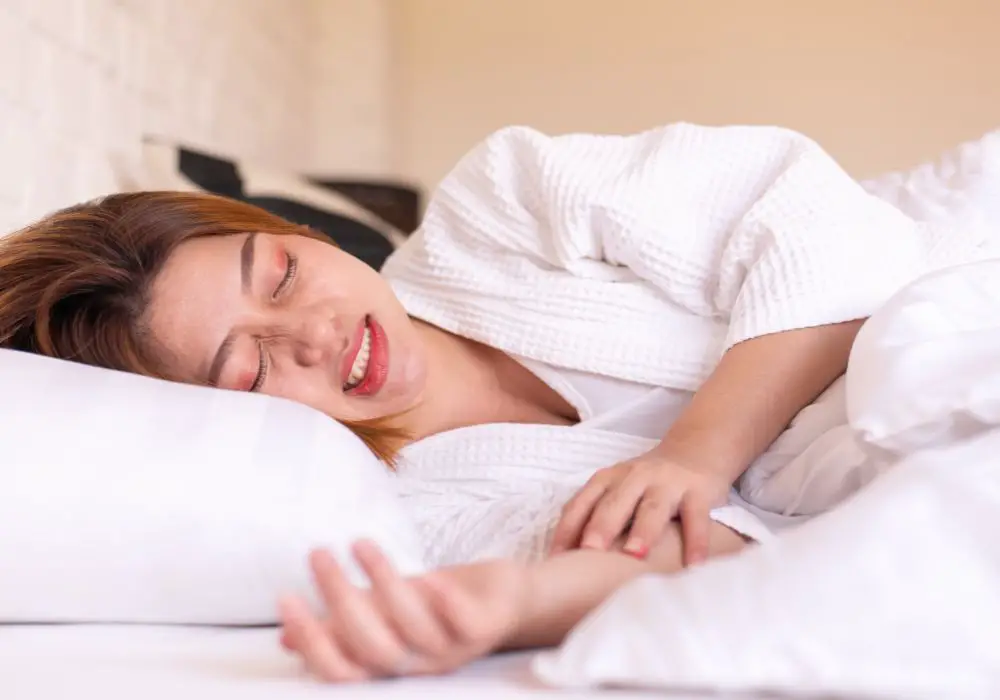
Teeth grinding, also known as bruxism, is a common condition that affects many people, especially during sleep. It is characterized by clenching and grinding of teeth, which can cause damage to the teeth, jaw, and surrounding tissues.
There are two types of bruxism: sleep bruxism and awake bruxism. Sleep bruxism occurs during sleep, while awake bruxism occurs during the day. Both types can be caused by stress, anxiety, and other emotional or psychological factors.
In addition to stress, teeth grinding can also be caused by physical factors such as misaligned teeth, an abnormal bite, or sleep disorders such as sleep apnea. Certain medications and substances like caffeine and alcohol can also contribute to teeth grinding.
Symptoms of teeth grinding include headache, earache, jaw pain, and tooth sensitivity. In severe cases, teeth grinding can cause tooth fractures, gum recession, and even tooth loss.
It is important to seek treatment for teeth grinding to prevent further damage to your teeth and jaw. Treatment options include lifestyle changes, such as reducing stress and avoiding caffeine and alcohol, as well as dental treatments like mouthguards and splints. In some cases, medication or therapy may also be recommended.
If you suspect that you may be grinding your teeth, it is important to talk to your dentist or healthcare provider. They can help you determine the underlying cause of your teeth grinding and develop a treatment plan that is right for you.
Causes of Teeth Grinding
Teeth grinding, also known as bruxism, can be caused by various factors, including:
- Stress and anxiety: One of the most common causes of teeth grinding is stress and anxiety. When you are stressed, your body produces more cortisol, a hormone that can increase muscle tension, including the muscles in your jaw.
- Sleep disorders: Teeth grinding can also be caused by sleep disorders, such as sleep apnea and snoring. These conditions can cause you to clench your jaw and grind your teeth while you sleep.
- Abnormal bite: If your teeth are misaligned or your bite is abnormal, you may be more likely to grind your teeth.
- Medications: Certain medications, such as antidepressants and antipsychotics, can cause teeth grinding as a side effect.
- Lifestyle factors: Lifestyle factors, such as smoking, drinking alcohol, and consuming caffeine, can also increase your risk of teeth grinding.
It’s important to identify the underlying cause of your teeth grinding in order to effectively treat it. If you suspect that you are grinding your teeth, it’s important to speak with your dentist or healthcare provider to determine the best course of action.
Home Remedies to Stop Teeth Grinding
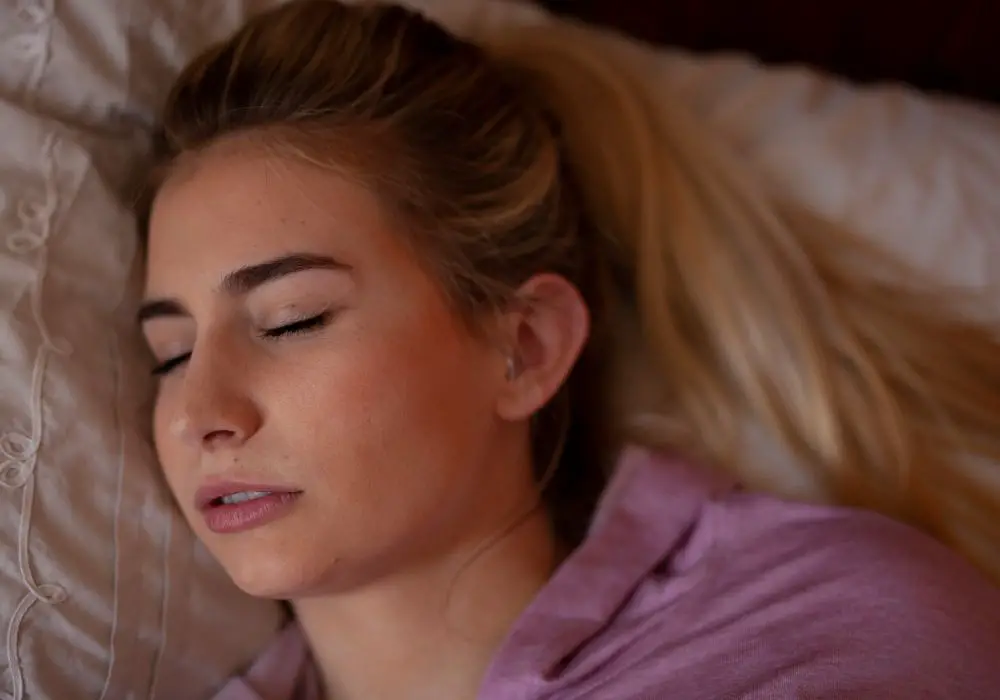
If you’re looking for home remedies to stop teeth grinding, there are a few things you can try. These remedies can help you manage your symptoms and reduce the damage to your teeth.
Stress Management Techniques
Stress is a common cause of teeth grinding, so finding ways to manage your stress can help reduce your symptoms. Here are some stress management techniques you can try:
- Meditation or deep breathing exercises
- Yoga or stretching
- Massage therapy
- Cognitive-behavioral therapy (CBT)
Dietary Changes
Certain foods and drinks can make teeth grinding worse, so making some dietary changes may help. Here are some tips:
- Avoid caffeine, which can make you more anxious and increase teeth grinding
- Limit alcohol consumption, as it can make teeth grinding worse
- Eat a balanced diet with plenty of fruits and vegetables
Exercise and Physical Therapy
Exercise and physical therapy can help reduce stress and tension, which can help reduce teeth grinding. Here are some options to consider:
- Regular exercise, such as walking or jogging
- Jaw exercises to help relax your jaw muscles
- Physical therapy to help improve your posture and reduce tension in your neck and shoulders
Natural Supplements
Some natural supplements may help reduce teeth grinding. Here are a few options:
- Magnesium, which can help relax your muscles and reduce stress
- Valerian root, which can help promote relaxation and reduce anxiety
- Melatonin, which can help regulate your sleep cycle and reduce teeth grinding at night
Remember, these home remedies are not a substitute for professional treatment. If your teeth grinding is severe or causing damage to your teeth, it’s important to see a dentist or doctor for further evaluation and treatment.
Preventive Measures
If you’re looking for ways to prevent teeth grinding, there are a few approaches you can take. In this section, we’ll discuss dental approaches and lifestyle adjustments that may help.
Dental Approaches
Your dentist may recommend dental approaches to help prevent or correct the wear to your teeth caused by bruxism. These methods may include:
- Splints and mouth guards: These are designed to keep teeth separated to avoid the damage caused by clenching and grinding.
- Dental correction: In some cases, dental correction may be necessary to fix misaligned teeth or other dental issues that are contributing to bruxism.
Lifestyle Adjustments
In addition to dental approaches, there are lifestyle adjustments you can make to help prevent teeth grinding. Here are a few tips:
- Reduce stress: Stress is a common cause of bruxism, so finding ways to reduce stress can help. Try relaxation techniques like meditation or yoga, or talk to a therapist if you’re feeling overwhelmed.
- Limit caffeine and alcohol: Both caffeine and alcohol can contribute to bruxism, so try to limit your intake of these substances.
- Avoid chewing on non-food items: Chewing on pens, pencils, or other non-food items can contribute to bruxism, so try to avoid this behavior.
- Practice good sleep hygiene: Getting enough sleep and establishing a regular sleep routine can help reduce bruxism.
- Jaw and facial muscle exercises: Strengthening the muscles in your jaw and face can help reduce bruxism. Your dentist or physical therapist can recommend exercises that may be helpful.
Remember, if you’re experiencing symptoms of bruxism, it’s important to talk to your dentist. They can help you determine the best course of action to prevent further damage to your teeth.
When to Seek Professional Help
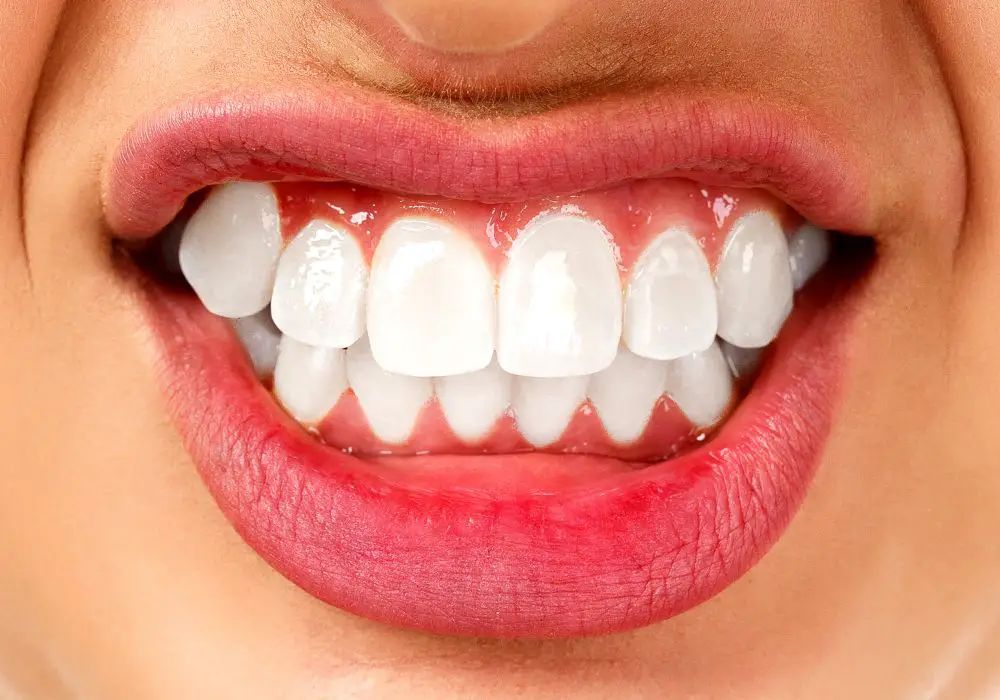
If you have been struggling with teeth grinding for a while and home remedies have not been effective, it may be time to seek professional help. Here are some signs that it may be time to see a dentist or doctor:
- You experience pain or discomfort in your jaw, face, neck, or ears.
- Your teeth are worn down, chipped, or cracked.
- You have trouble sleeping due to teeth grinding or clenching.
- Your partner complains about the noise of your teeth grinding at night.
- You have tried several home remedies without success.
A dentist or doctor can help diagnose the underlying cause of your teeth grinding and recommend appropriate treatment. They may recommend the following:
- Mouthguards or splints: These devices can help protect your teeth and prevent further damage.
- Dental correction: If your teeth are worn down or damaged, your dentist may need to reshape or repair them.
- Medications: In some cases, medications such as muscle relaxants or antidepressants can help reduce teeth grinding.
- Therapy: If stress or anxiety is causing your teeth grinding, therapy or counseling may be helpful.
Remember, teeth grinding can lead to serious dental problems if left untreated. If you are experiencing any of the symptoms listed above, it is important to seek professional help as soon as possible.
Frequently Asked Questions
What are some natural remedies for teeth grinding?
There are several natural remedies that may help alleviate teeth grinding, including:
- Drinking chamomile tea before bed
- Using lavender essential oil to promote relaxation
- Applying a warm compress to your jaw muscles
- Practicing relaxation techniques, such as deep breathing or yoga
How can I stop grinding my teeth at night?
There are several ways to stop grinding your teeth at night, including:
- Wearing a mouthguard or splint to protect your teeth
- Addressing any underlying sleep disorders, such as sleep apnea
- Practicing stress-reducing techniques, such as meditation or exercise
- Avoiding caffeine and alcohol before bed
What are some homeopathic remedies for teeth grinding?
Some homeopathic remedies that may help with teeth grinding include:
- Ignatia: for stress and emotional upsets
- Coffea cruda: for insomnia and restlessness
- Nux vomica: for tension and irritability
- Gelsemium: for anxiety and muscle tension
It is important to consult with a licensed homeopath before using any homeopathic remedies.
What is the best way to prevent teeth grinding during the day?
To prevent teeth grinding during the day, you can try:
- Being mindful of your jaw muscles and avoiding clenching
- Practicing stress-reducing techniques, such as deep breathing or yoga
- Taking breaks throughout the day to stretch and relax your muscles
- Avoiding chewing gum or other hard foods
How long does teeth grinding pain typically last?
The duration of teeth grinding pain can vary depending on the severity of the condition and the individual. Mild cases may resolve on their own, while more severe cases may require treatment. It is important to consult with a dentist or healthcare provider if you are experiencing teeth grinding pain.
What are some effective treatments for jaw pain caused by teeth grinding?
Some effective treatments for jaw pain caused by teeth grinding include:
- Applying a warm compress to the affected area
- Taking over-the-counter pain relievers, such as ibuprofen or acetaminophen
- Performing jaw exercises to strengthen and relax the muscles
- Wearing a mouthguard or splint to protect the teeth and reduce grinding

